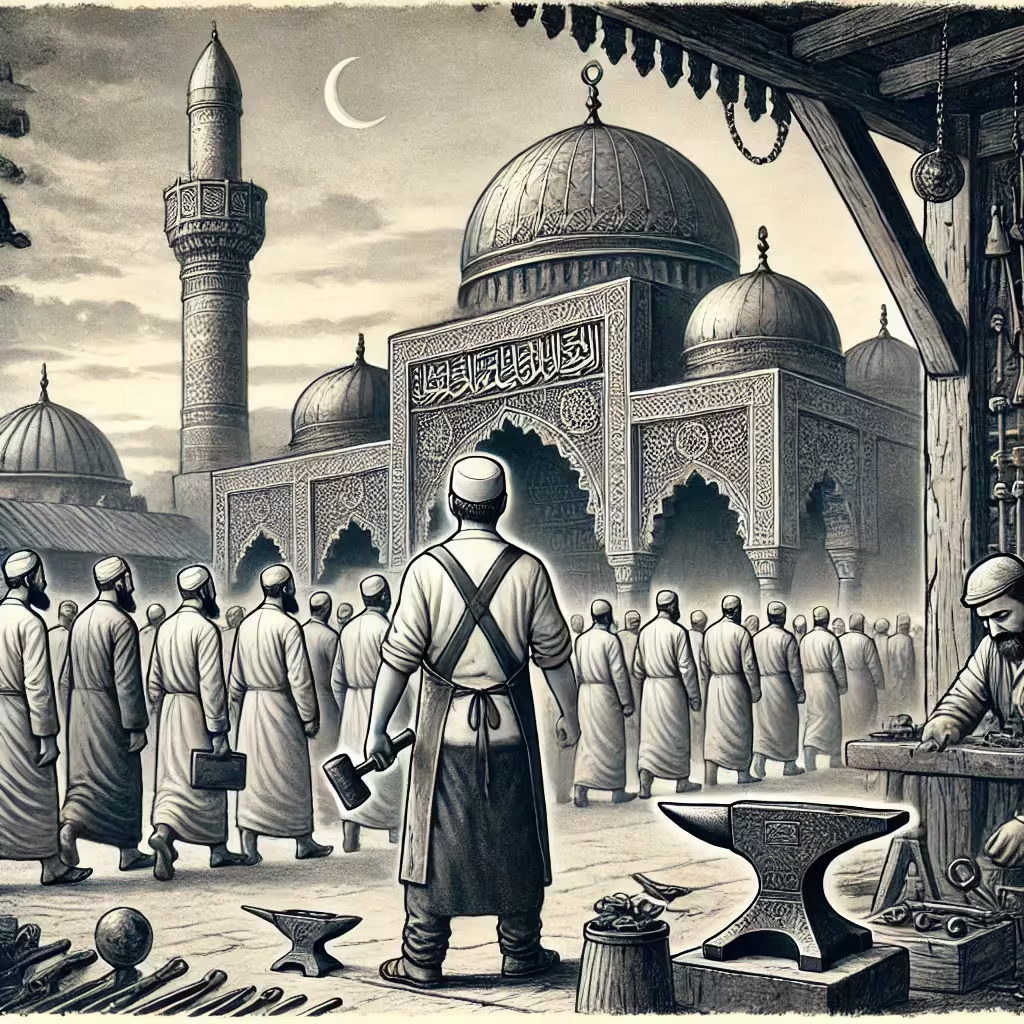Table of Contents
Introduction
This is the eighth part in a series of articles that discuss the prayer in Islam, its correct form, how it should be performed correctly, and how our righteous predecessors practiced it. You can click here to read the full series, ALLAH willing.
The Secret to Meaningful Prayer
Let us reflect on those who came after the Prophet (Peace be upon Him) and His companions — the Tabi’in and their successors. Among them and their predecessors were individuals who deeply valued prayer. The key is to truly understand the significance of prayer and recognize that it is the foundation of all good, both in one’s religious and worldly life. Any good you experience in this life or the hereafter is connected to prayer, just as neglecting prayer leads to loss and destruction. How does this happen?
The Prayer of Our Predecessors
Our predecessors’ deep understanding of prayer shaped all their knowledge, Quranic study, and devotion, centering on perfecting their prayer. For example, Sufyan al-Thawri said about Mansur ibn al-Mu’tamir: “If you saw him pray, you would think he was about to die”. It was as if every prayer was his last.

The Prophet (Peace be upon Him) instructed this mindset, saying,
“When you stand to pray, pray like a man bidding farewell…“1
Imagine how your prayer would be if you knew it was your last.
Sufyan al-Thawri himself would often struggle to complete reciting Al-Fatihah due to his deep emotion and weeping. Think about how many times we recite Al-Fatihah in our prayers, whether alone or in congregation—have we ever been moved to tears? When Sufyan reached “It is YOU we worship and YOU we ask for help“2, he would be so overwhelmed that he could hardly finish and would start again, saying, “[All] praise is [due] to ALLAH, Lord of the worlds“3. This was the state of their hearts during prayer.
Sa’id ibn al-Musayyib, one of our righteous predecessors, once said, “For forty years, the call to prayer hasn’t been made without me already being in the mosque, and I haven’t seen the back of someone’s head while praying for forty years”, meaning he was always in the front row. Similarly, Muhammad ibn Wahb said, “I haven’t missed the opening Takbir for forty years, except once when my mother passed away”. Even then, he missed only the opening Takbir, not the entire congregational prayer, due to his mother’s passing.
One of our predecessors once missed the congregational Isha prayer because he had a guest. After the guest left, he searched all the mosques in Basra but couldn’t find one still holding the congregational prayer. To make up for missing the reward, he prayed Isha 27 times, as the reward for praying in congregation is 27 times greater than praying alone.
It was said of Shaykh al-Islam Ibn Taymiyyah, “If you saw him say the opening Takbir, your heart would be in awe”. His Takbir carried such majesty, reflecting their deep understanding of prayer.
Salah as the Ultimate Priority
These examples are of people who never saw the Prophet (Peace be upon Him) or His companions, , yet they followed in the footsteps of their predecessors and grasped the true meaning of prayer. This is what we must also understand. As we write these articles, we remind ourselves first and hope that ALLAH allows us to benefit most from this knowledge, as we need to truly understand prayer.
Our predecessors approached prayer as if they were about to enter ALLAH’s presence. Imagine if they were invited to meet a worldly king—how would they enter? How joyful and awestruck would they be?
The Transformative Power of Prayer
Hasan al-Basri‘s face would turn pale when he performed ablution, and when asked why, he would say, “Do you know before whom I’m about to stand?” Acknowledging that he was about to stand directly before ALLAH with no intermediary or barrier.
When Ali ibn Abi Talib heard the call to prayer, he would tremble and say, “The time of the Trust has come, by ALLAH, the Trust that was offered “to the heavens and the earth and the mountains, and they declined to bear it“4, and I have borne it”.
This is the trust of prayer—the responsibility that the heavens and the earth declined, but we have accepted. This was their reverence for prayer held by our predecessors.
Immediate Response to the Call of Prayer
Some of our predecessors would hear “ALLAH Akbar” and immediately head to the mosque, even if they were in the middle of work. Some were blacksmiths, and if they raised their hammer when the call to prayer was made, they wouldn’t bring it down—they would leave their work to go pray.

As for us, we often wait until the Iqamah (second call) and argue that the imam hasn’t started yet. May ALLAH forgive us, pardon us, and make us among the righteous.
This was their state:
“They walked to ALLAH’s houses with longing and joy
as soon as they heard “ALLAHu Akbar”.
Their souls humbled in etiquette.
and their hearts stood in awe of ALLAH’s majesty.
They would whisper, “Our LORD, we’ve come to You in obedience,
though we have disobeyed the deceiver of false hopes”.
These are the people whom no distraction,
play, or laziness pulled away from their prayer”
Everything in this world is a distraction—trade, studies, money, even university. Don’t let these amusements take you away from what is with ALLAH:
“Say, “What is with ALLAH is better than diversion and than a transaction, and ALLAH is the best of providers”“5
(Surah ‘Al-Jumuca’, 62:11)
Don’t let the world distract you.
A man would raise his hammer and not bring it back down, heading straight to prayer. Another prayed in the front row for 40 years.
May ALLAH grant us the understanding of prayer’s true value and help us prioritize it in our lives.
Sources:
- Dr. Ahmed ElAraby. فاهم 36 | سلسلة تذوق العبادات – (1) الصلاة | مع د. أحمد العربي. YouTube Video.

